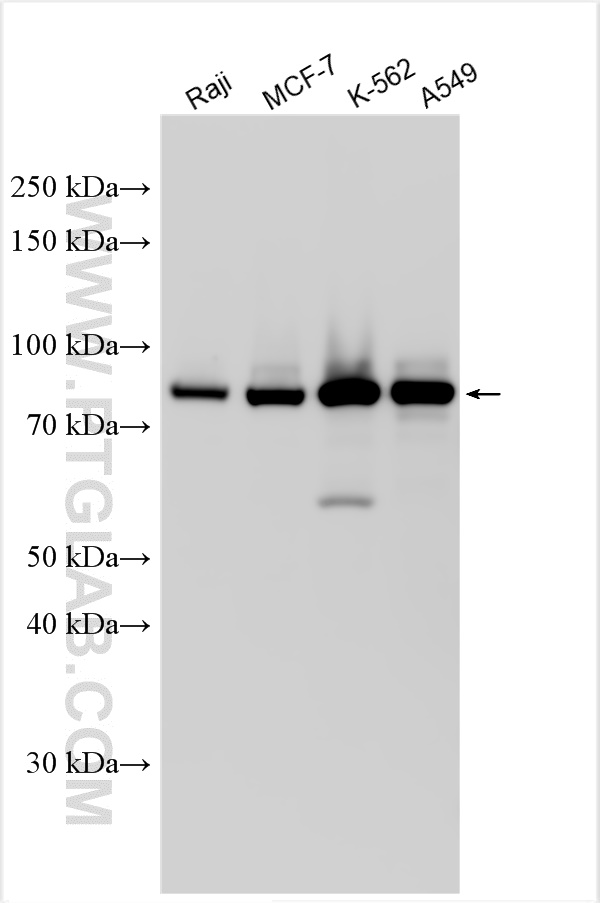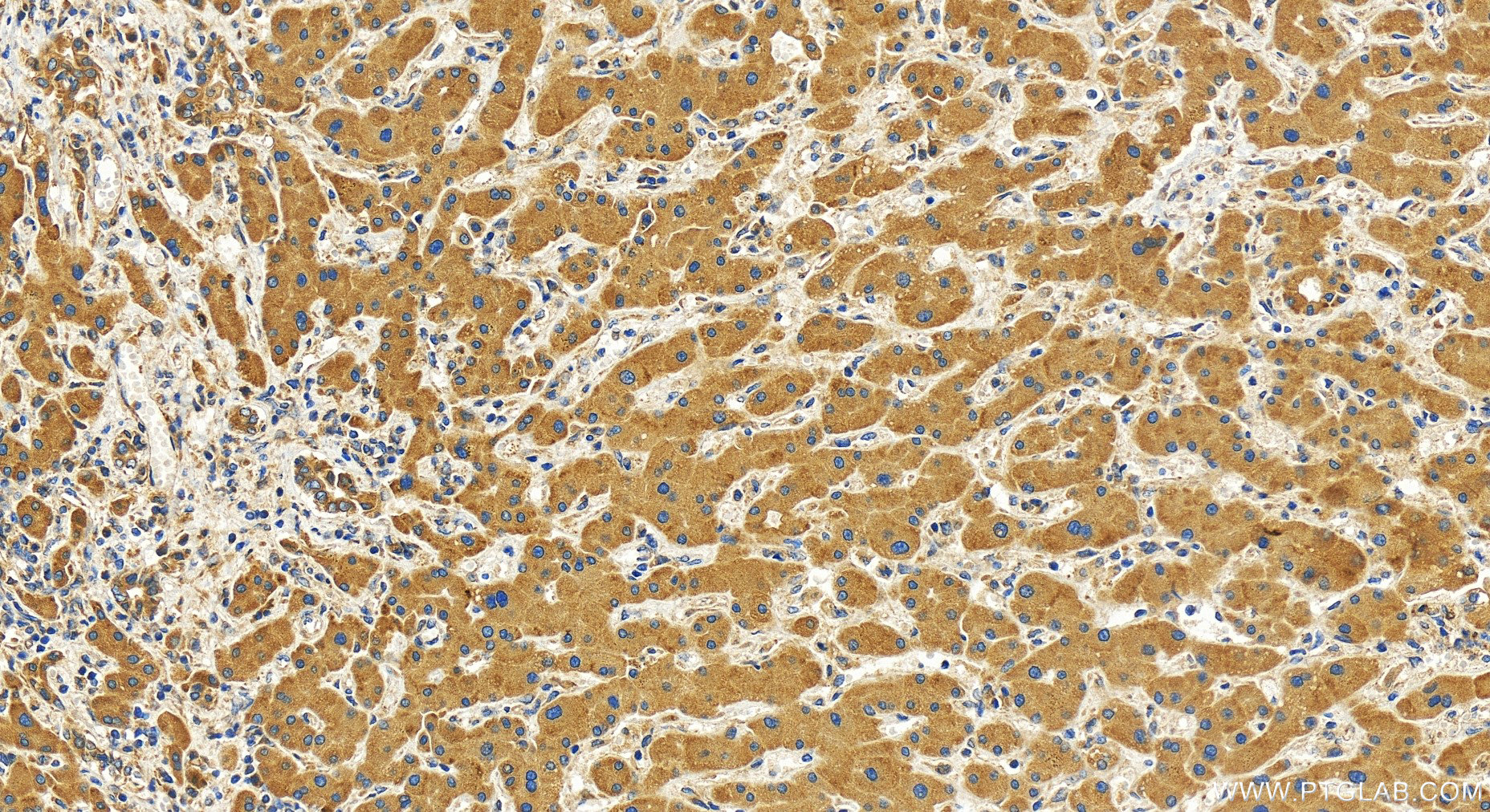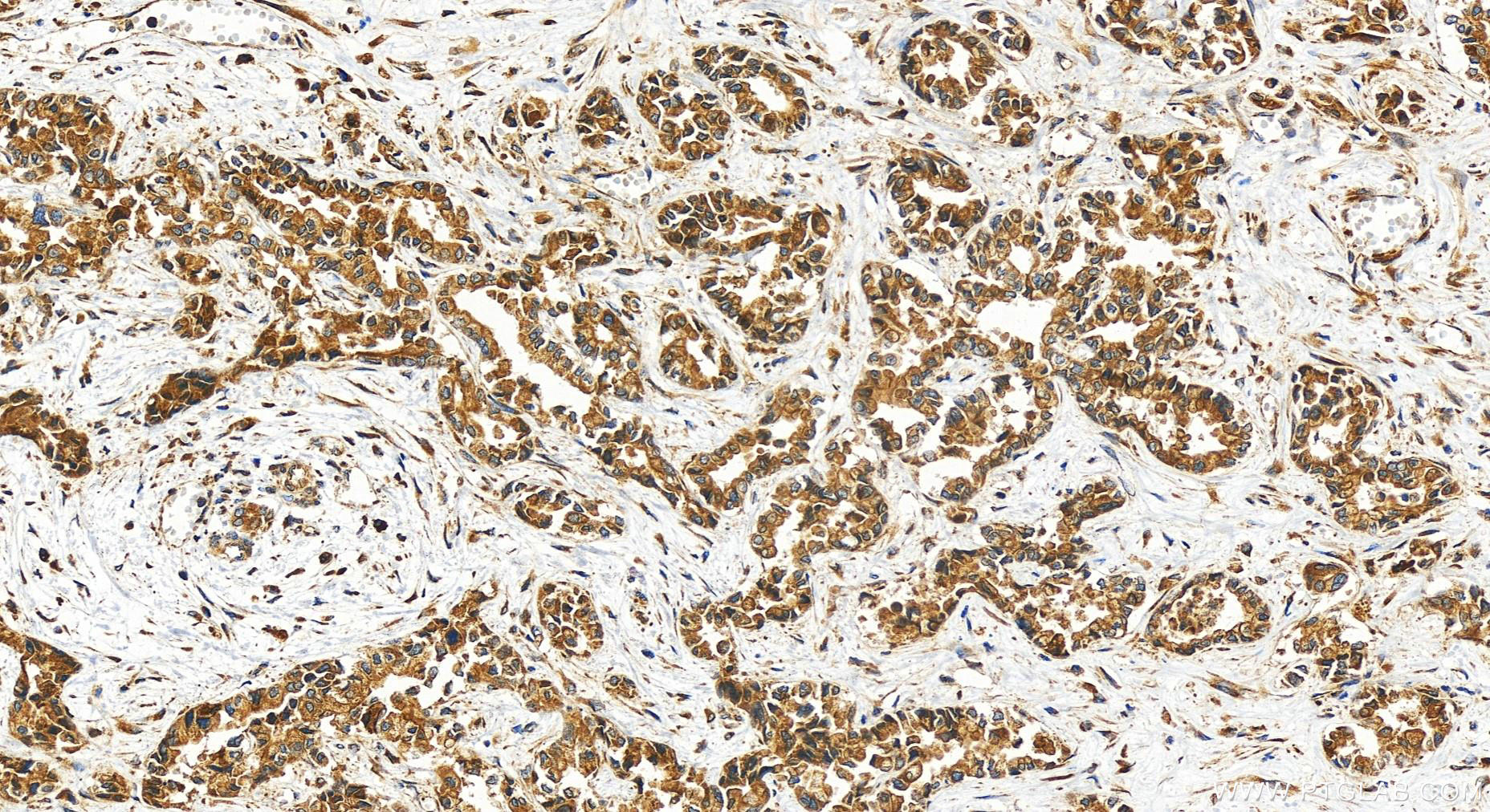验证数据展示
经过测试的应用
| Positive WB detected in | Raji cells, MCF-7 cells, K-562 cells, A549 cells |
| Positive IHC detected in | human intrahepatic cholangiocarcinoma tissue Note: suggested antigen retrieval with TE buffer pH 9.0; (*) Alternatively, antigen retrieval may be performed with citrate buffer pH 6.0 |
推荐稀释比
| 应用 | 推荐稀释比 |
|---|---|
| Western Blot (WB) | WB : 1:2000-1:12000 |
| Immunohistochemistry (IHC) | IHC : 1:50-1:500 |
| It is recommended that this reagent should be titrated in each testing system to obtain optimal results. | |
| Sample-dependent, Check data in validation data gallery. | |
产品信息
31407-1-AP targets CMIP in WB, IHC, ELISA applications and shows reactivity with human samples.
| 经测试应用 | WB, IHC, ELISA Application Description |
| 经测试反应性 | human |
| 免疫原 | CMIP fusion protein Ag35679 种属同源性预测 |
| 宿主/亚型 | Rabbit / IgG |
| 抗体类别 | Polyclonal |
| 产品类型 | Antibody |
| 全称 | c-Maf-inducing protein |
| 别名 | TCMIP, Tc Mip, c-Mip, C-Maf-inducing protein, c Mip |
| 计算分子量 | 86 kDa |
| 观测分子量 | 86 kDa |
| GenBank蛋白编号 | BC038113 |
| 基因名称 | CMIP |
| Gene ID (NCBI) | 80790 |
| RRID | AB_3669968 |
| 偶联类型 | Unconjugated |
| 形式 | Liquid |
| 纯化方式 | Antigen affinity Purification |
| UNIPROT ID | Q8IY22 |
| 储存缓冲液 | PBS with 0.02% sodium azide and 50% glycerol , pH 7.3 |
| 储存条件 | Store at -20°C. Stable for one year after shipment. Aliquoting is unnecessary for -20oC storage. |
背景介绍
Cmaf‐inducing protein (CMIP) is a newly identified gene that encodes an 86 kDa protein, containing an N‐terminal pleckstrin homology domain (PH), a nuclear localization signal near the PH domain, a middle region characterized by the presence of several interacting docking sites, including a 14‐3‐3 module, a PKC domain, an Erk domain, an SH3 domain similar to the p85 regulatory subunit of phosphatidylinositol 3‐kinase (PI3K), and a C‐terminal leucine‐rich repeat (LRR) domain.
实验方案
| Product Specific Protocols | |
|---|---|
| WB protocol for CMIP antibody 31407-1-AP | Download protocol |
| IHC protocol for CMIP antibody 31407-1-AP | Download protocol |
| Standard Protocols | |
|---|---|
| Click here to view our Standard Protocols |


